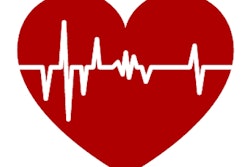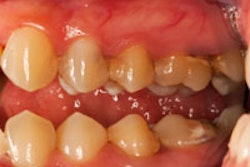
A new study in the Journal of Dental Hygiene that looked at cardiologists' knowledge of the relationship between periodontal disease and heart disease found that many were unclear about the cause of periodontal disease. But they would like to have more information about the potential link between the two conditions, the researchers found.
The oral-systemic link has gained increasing importance in recent years as periodontal disease has been linked to diabetes, adverse pregnancy outcomes, and heart disease.
The American Heart Association (AHA) issued a statement in 2012 that noted that, while there is an association between the two conditions, there is not a causal relationship. However, no published study has addressed cardiologists' knowledge and opinions about this area of science, the researchers noted.
Study author Rebecca Wilder, BSDH, director of graduate dental hygiene education at the University of North Carolina at Chapel Hill told DrBicuspid.com that, while many investigators were studying the process of oral-systemic disease connections, she and her co-authors were interested in how it directly affected patient care. Their study was published in the Journal of Dental Hygiene (October 2014, Vol. 88:5, pp. 275-284).
They wanted to know if other health professionals were being educated about oral health and specifically about oral-systemic disease evidence. In other words, were laboratory and clinical findings from studies being translated to direct patient care?
This particular study is the latest of several groups of healthcare professionals that they have studied, Wilder said. For example, they have published papers regarding the knowledge, attitudes, and opinions regarding oral-systemic disease from obstetricians and gynecologists (ob/gyns), nurse practitioners, certified nurse practitioners, diabetes educators, endocrinologists, and internists.
"With the level of evidence for an association between periodontitis and atherosclerosis, we wanted to know if cardiologists were reading and translating this information to patients," she said.
Wilder added that the American Journal of Cardiology and Journal of Periodontology Editors' Consensus: Periodontitis and Atherosclerotic Cardiovascular Disease was published in 2009, and the study authors wanted to know if cardiologists were aware of the recommendations for collaborative care of patients (Am J Cardiol, July 2009, Vol. 104:1:59-68).
Wilder and colleagues developed, revised, pilot tested, and mailed a cross-sectional survey to 625 registered cardiologists in North Carolina starting in the fall of 2012 until January 2013.
The survey included 34 questions that addressed topics such as practice setting, oral exams, oral and systemic health, opinions about periodontal disease, education, and demographics.
A total of 119 surveys were completed (a 19% response rate). About 41% of cardiologists said they refer patients to a dental facility when they express concerns about their mouth, and 31% refer if they see something that should be further examined. However, 22% never refer patients to a dental clinic or facility.
About 18% of respondents said that they perform an oral exam at the patient's initial visit, while 21% said they never perform one. When asked for their reasons, 46% said that these exams are the responsibility of the dental professional, while 45% said they were not sure what type of exam to perform.
“The majority of physicians agreed it is important for cardiologists and periodontists to work together to educate their patients about oral systemic disease risks.”
When it comes to knowledge about periodontal disease, 70% of respondents reported that bone loss describes periodontal disease, while 63% correctly identified the first sign of periodontal disease as being bleeding gums. When asked if patients with periodontal disease were more likely to have increased atherosclerosis and risk for myocardial infarction and stroke, 72% agreed.
When asked about their knowledge of the studies linking the two conditions, 50% of respondents agreed there was a link, while the rest were either unsure or disagreed. Only 39% agreed that periodontal disease treatment could decrease a patient's risk for cardiovascular disease. However, 72% were interested in learning more about the relationship between cardiovascular disease and periodontal disease.
The majority of physicians (71%) agreed it is important for cardiologists and periodontists to work together to educate their patients about oral systemic disease risks.
When asked if they were familiar with the 2009 clinical recommendations, 16% of respondents said they were slightly familiar with them, while 78% said that they were not familiar with them. And while 22% were aware of the 2012 statement from the AHA, 86% said the statement had not changed their opinion about the importance of oral health to overall health.
Only 20% of physicians reported that their professional education included oral health content. However, 80% reported not receiving any education on oral healthcare.
While the researchers were not particularly surprised by these findings, they did add to the knowledge about health professionals in general in that they do not receive much or any education about oral health in their professional education, Wilder told DrBicuspid.com.
"The best way to increase awareness that will have a long-lasting impact is to increase the amount of content on oral health in medical education," she said. "In addition, an increase in interprofessional education and practice between dental students, dental hygiene students, medical students, nurses, etc. will have the greatest impact on awareness and implementation of strategies to improve oral health and possibly heart health."
In the study, 60% of respondents said that medical and dental students should be trained to work collaboratively, and 39% responded with "maybe."
Although both medical and dental curricula are overly crowded, it does not benefit the patient if we all continue to work in silos, Wilder concluded.



















